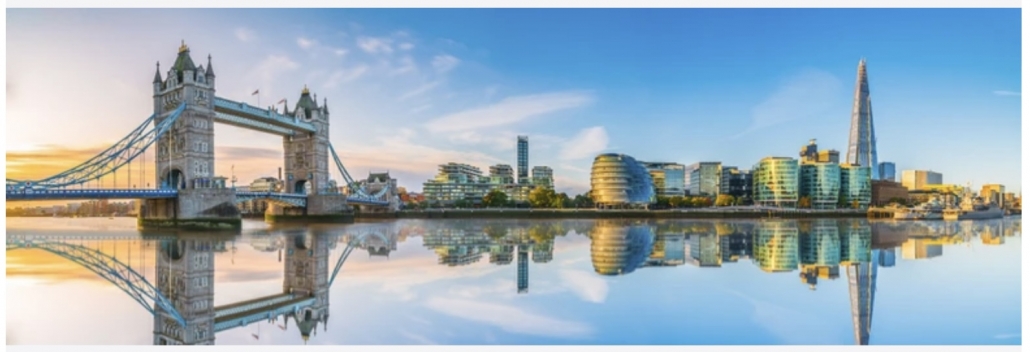Global Britain

In June 2016, the people of Britain decisively voted to withdraw from the European Union. The final negotiations for the new relationship between Britain and the EU were completed in December 2020 and come into force on 1st January 2021. Having played an active role in the European debate since the late 1980s, the WorldPR leadership team has been advising corporations and legal entities, chiefly outside the EU, on what Brexit means for them and how to leverage the new, Global Britain to their advantage. The macro-economic analysis below explains the background to Brexit and sets out the key strategic considerations that will determine its long term success.
Although the pound sterling fell sharply against the dollar, euro and other world currencies immediately after the referendum, the dire consequences predicted by the British government and other Remain campaigners never materialised. The weak pound created a favourable trade climate, there was no mass exodus of investment banks from the City, British manufacturing did not flee to the euro-zone, there was no “crisis budget” the day after the vote and unemployment did not instantly jump by 500,000. In fact, the British economy continued to perform well. It grew faster than the EU average, and by January 2019 unemployment had declined to a 44-year low and remained low until the global pandemic disrupted economies everywhere.
Not only is Britain still open for business, it is rapidly pushing forward. In early December 2020, the Department of International Trade reported that Britain had already signed trade deals with 27 countries or trade blocs, including with such key partners as Canada, Iceland and Norway, Singapore and Switzerland. These will come into effect on January 1, 2021, when EU deals no longer apply to the UK, at the same time as the new trade deal with the EU. Talks with a further 11 countries continue. Additionally, Britain has signed a free trade agreement with Japan and mutual recognition agreements with Australia, New Zealand and the United States.
In the four years since the referendum, nearly a fifth of British companies have forged new trade relationships outside the EU, and an estimated £50 billion in trade has been diverted from the EU to emerging markets, mainly the BRICS countries. But there is nothing new in this pattern. Trade with the EU has been shrinking for years. In 2019, the EU accounted for 43.5% of British exports and 51.8% of its imports. This is well down from 1999 when it accounted for 53.8% of exports and 56.1% of imports. Over the same period, the share of exports to non-EU markets rose by 12% and imports by 4.3%. Moreover, in 2019 British trade with the EU resulted in a £79.2 billion trade deficit while its trade with non-EU countries generated a £48.7 billion surplus. Here, too, is a well-established pattern: every year since 1999, Britain has had a negative balance of trade with the EU whereas most years – and every year since 2011 – it has had a trade surplus with its non-EU partners.
There is an automatic assumption in some parts of the world that Brexit is a negative development. This is based on two misconceptions. The first is an exaggerated valuation of what access to the European single market means. In fact, although only 6% of British companies actually trade with the EU, access came at a very high price to the entire economy. This included, among other costs and restrictions, the second-highest membership fees in the bloc, the loss of 90 per cent of fishing grounds in British waters, the absorption of a mass of regulation with direct effect known as the acquis communautaire, joint liability for eurozone bailouts and the European Investment Bank, uncontrolled immigration and, above all else, the direct supremacy of the European Court of Justice over UK law. The second misconception is based on a false narrative, fostered by Remain campaigners and the EU elite. According to this version of events, Brexit was triggered by a single political event – the European migration crisis triggered by Mrs Merkel in 2015 is most often cited – which led to the growth of “populism”. Populism is characterised as a narrow-minded, xenophobic and backward-looking nationalism, especially when projected on British critics of the EU. The truth, however, is different.
Brexit, at its heart, descends from a noble ideal, which is the assertion by the people of their fundamental constitutional right to be sovereign over their government according to centuries-old democratic traditions that crystallised during the English and Scottish Enlightenment. These are universal values and the federal European State stands in direct and unequivocal opposition to them. Additionally, as the trade figures clearly show, the economic arguments in favour of British integration with the EU started to unravel a long time ago. The price of access to the EU market, in terms of direct costs, overbearing regulation and loss of democratic rights, became too high. This, then, is the economic and political landscape against which the gradual, thirty-year process of leaving the EU needs to be viewed. As such, Brexit is a statement of economic reality reinforced by political necessity. So overwhelming was popular support for Brexit that it won the referendum despite the opposition of every single important branch of the British Establishment.
The deal agreed between Boris Johnson and the EU in late December 2020 unfetters the British economy from EU strictures and opens new opportunities for British businesses and the foreign companies that want to trade with them. Britain now has a number of clear advantages.
Firstly, it enables the country to frame its own trade policy and to forge trade deals better suited to its economy without wasting valuable time reconciling conflicting vested interests in the EU. Secondly, Britain can now begin to adjust the hundreds of thousands of EU regulations, many of them bad, that govern everything from temporary workers, working time, chemicals and end-of-life vehicles, to anti-scientific bans on genetic modification, restrictions on growth generating venture capital, anti-internet ‘accept cookie’ requirements and the (transparently anti-Dyson) restrictions on the power of vacuum cleaners. A third and really important freedom concerns the ability to diverge from the EU on future regulation. This will apply especially to AI and robotics, and to a raft of digital issues. The British tech sector is already the biggest in the EU and after Brexit it is expected to grow very significantly. While the EU is likely to over-regulate these sectors to preserve existing structures, Britain now has the freedom to take a different path.
Over time, being unshackled from the EU will allow British policymakers to adopt a more flexible and nuanced regulatory system that better framed to its needs. An early example of this was the ability of the UK Medicines and Healthcare Products Regulatory Agency to efficiently evaluate and authorise emergency use of the Pfizer and BioNTech COVID-19 vaccine, a world first that would have been impossible had Britain continued to adhere to the approval process adopted by the EU. By contrast, the countries of the EU specifically elected to act as a single entity in seeking to provide a vaccine to the pandemic. Thus, in an overtly political move designed to appease Macron who was championing the Sanofi vaccine, the EU put in a smaller order to Pfizer and BioNTech. The announcement by Sanofi that if faces severe delays to the rollout of its vaccine, by as long as half a year, has hurled a hand grenade into the EU’s plans to vaccinate the majority of European citizens by Summer 2021 and the political ramifications of this setback, notably in Germany, appear to be very serious.
For Britain’s departure from the EU to be truly successful, however, it must above all be prepared to undertake meaningful reforms. The most immediate and important priority of British policymakers concerns taxation. Britain faces an additional £400 billion in borrowing as a result of the COVID-19 pandemic, making the nation’s debt burden more than 100% of GDP for the first time since the 1960s. Boris Johnson’s government will need to act decisively, even radically if necessary, to stimulate growth. The successful renegotiation of British long-term debt on very favourable terms provides a window in which to prioritise growth over fiscal rectitude. The government is unlikely, therefore, to make the mistake of first seeking to restore the public finances. There also needs to be decisive reforms to boost the level of real investment, both public and private, to tackle the poor performance of the public sector across a wide range of activities including the health system and improve Britain’s under-performing educational sector, including its bloated university system. It is encouraging that the government is hinting that a number of radical reforms that were hidden from public view during the EU negotiations, may already be in the pipeline.
In the lead up to and aftermath of the referendum, the CEOs of many of Britain’s biggest companies despaired loudly over the economic precipice they saw before them and vowed to move their operations out of the country. Among them was the CEO of the Anglo-Dutch conglomerate Unilever. Notwithstanding threats to relocate the company to the Netherlands, in November Unilever merged its two arms into a single legal entity – Unilever PLC – that now trades exclusively on the London Stock Exchange. Since the predicted flight of business and finance from the UK has yet to happen, it is likely that most companies whose CEOs were once staunch Remainers will follow Unilever’s lead in recognising the world of opportunity opened to them by Brexit.
Leaving the EU and shedding the weight of many of its restrictions will help unleash a new tiger economy no longer trapped in the regulatory orbit of the European Commission. Global Britain is already spreading its wings by forging closer economic and security links with traditional allies such as the US, Canada, Australia and New Zealand. A CANZUK trade and military alliance, symbolised by Britain’s opening of a new naval base in Bahrain and the stationing of one of its two Queen Elizabeth II class aircraft carriers east of Suez, offers up the possibility of a new and exciting horizon. Having been at the side of Margaret Thatcher in September 1988 when she fired the starting gun for the Leave campaign at her historic speech at Bruges, and benefiting from more than thirty years experience in international political communications, the WorldPR leadership team has the knowledge and expertise to help companies, governments and organisations navigate the post-Brexit landscape and achieve their objectives in Global Britain.
